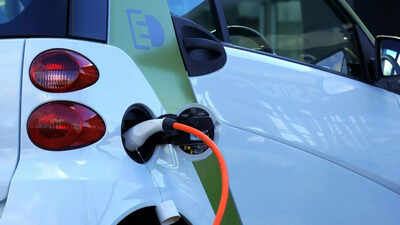Ebike Growth and Kerala’s Surprising Rank
Ebike adoption in Kerala has been gaining attention over the past few years, with more people shifting to eco-friendly rides for daily commutes. However, the latest India Electric Mobility Index 2024 (IEMI) released by NITI Aayog shows a mixed picture for the state. Kerala ranked 19th out of all states and union territories, earning the label of an ‘Aspirant’ state with an overall score of 36 out of 100.
The index evaluates three main areas transport electrification, charging infrastructure readiness, and research and innovation in electric mobility. Kerala scored 21st in transport electrification, 11th in research and innovation, and 24th in charging infrastructure readiness. This performance placed it alongside Jharkhand in the rankings.
While Delhi, Maharashtra, and Chandigarh claimed the top three spots with strong overall scores, Kerala’s results highlight the gap between rising Ebike adoption at the personal level and the state’s broader e-mobility ecosystem.
Private Ebike Adoption Strong, but Commercial and Infrastructure Lagging
One bright spot for Kerala is its performance in private electric vehicle adoption. The state shares the top “Achiever” position with Karnataka and Maharashtra in this category, scoring a perfect 100. This shows that individual buyers are embracing Ebikes and other electric vehicles at a fast pace, making Kerala one of the leaders in personal EV ownership.
However, the same enthusiasm is missing when it comes to commercial EV adoption. The state remains in the ‘Aspirant’ category for electric buses, trucks, and commercial three-wheelers. Charging infrastructure is another hurdle, with only 1,872 chargers across 1,163 charging stations. The EV-to-charger ratio remains a challenge, limiting convenience for both private and commercial users.

Research and innovation show some promise. Kerala earned its 11th rank thanks to developments like the lithium titanate battery prototype by the Vikram Sarabhai Space Centre (VSSC) and Travancore Titanium Products (TTPL), which experts see as a big step forward for the industry. The state also leads the country in electric car penetration, with a rate of 9.1% recorded in March 2025.
The report recommends that Kerala boost its e-mobility drive with policies like low-emission zones, scrapping old vehicles, retrofitting older models, and offering better purchase subsidies. It also suggests improving public charging infrastructure through a single-window clearance system and concessional land rates for charging stations.
On the research side, NITI Aayog advises the creation of R&D centres, centres of excellence, and dedicated e-mobility courses to develop a skilled workforce for the EV industry.
National Push for EVs and Impact on Ebike Market
At the national level, the central government is extending the PM E-Drive scheme for two more years, until March 31, 2028, or until the allocated ₹10,900 crore is used up. This initiative aims to encourage EV adoption, support localisation of EV components, and expand charging networks..jpg) However, subsidies for electric two-wheelers and three-wheelers , including Ebikes will end on March 31, 2026, as originally planned. The incentives, currently ₹5,000 per kWh in FY2025, will drop to ₹2,500 per kWh in FY2026, with a cap of 15% of the vehicle’s ex-factory price. This reduction may slow down Ebike adoption unless states like Kerala step in with their own support schemes.
However, subsidies for electric two-wheelers and three-wheelers , including Ebikes will end on March 31, 2026, as originally planned. The incentives, currently ₹5,000 per kWh in FY2025, will drop to ₹2,500 per kWh in FY2026, with a cap of 15% of the vehicle’s ex-factory price. This reduction may slow down Ebike adoption unless states like Kerala step in with their own support schemes.
Larger commercial EVs like buses, trucks, and ambulances will continue receiving incentives until 2028. Industry voices, such as Ayush Lohia, CEO of YOUDHA, have pointed out the strong growth in cargo electric three-wheelers, calling for policies that encourage production and adoption across all categories.
For Kerala, the path forward lies in turning private Ebike enthusiasm into a wider e-mobility success story. This means not only making it easier for individuals to own and charge Ebikes but also investing in public transport electrification, better infrastructure, and innovative research. Also Read: Royal Enfield: Shocking Supply, Technical Setback and 1 Sudden Suspension
Conclusion:
Kerala’s low rank in the India Electric Mobility Index highlights the gap between strong private Ebike adoption and weaker performance in charging infrastructure and commercial EV use. With the right policies and investment, the state has the potential to climb the rankings and become a true leader in India’s electric mobility future.

